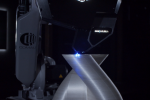
Continuous Composites sued? A new twist after Markforged patent battle
3dprintingindustry.com
A dispute over legal fees has escalated between Spokane-based law firm Lee & Hayes PC and composite 3D printing technology developer Continuous Composites.According to Coeur dAlene (CDA) Press, the law firm claims it is owed more than $7 million for its legal work, while Continuous Composites insists its obligation does not exceed $3 million. Court filings show that the disagreement stems from a 2021 lawsuit in which Continuous Composites sued 3D printer manufacturer Markforged for patent infringement.Lee & Hayes provided legal representation under an initial agreement, later revising the terms in 2023 to lower the firms potential payment in the event of a successful outcome. Under the new terms, payment would be calculated as 30% of any settlement or verdict.Continuous Composites CEO Steve Starner said, We are disheartened to have received this complaint.3D printing a composite part with CF3D. Photo via Continuous Composites.Patent lawsuit sparks fee disputeA jury in Delaware ruled in April that Markforged infringed on a patent, awarding Continuous Composites $17.34 million in damages. The lawsuit initially involved multiple patents, but only one remained after a court ruling in 2022. While one claim was deemed invalid, the jury ruled that Markforged infringed another, leading to the damages award.Later, the company reached a $25 million settlement with Markforged, concluding the lengthy patent infringement legal battle. Under the settlement terms, Markforged agreed to an $18 million upfront payment, followed by additional payments of $1 million in 2025, $2 million in 2026, and $4 million in 2027.Including cross-licensing of patents and a covenant not to sue, the agreement remains subject to approval by the U.S. District Court for the District of Delaware.In the latest lawsuit, the Spokane-based firm has stated in court documents that it was unaware of the settlements final amount until reading a press release from Markforged in September last year.According to the complaint, Continuous Composites acknowledged receiving $18 million but declined to set aside or pay the $7.2 million contingency fee the law firm says it is owed. In response, Continuous Composites filed a counterclaim last week, citing an email in which Lee & Hayes allegedly agreed to accept $3 million as full and final payment for its legal work.Starner stated that the company acted in good faith, relying on clear written representations from Lee & Hayes and their board regarding fees for their work on the litigation with Markforged. He stated that the firm later reversed its position and sought additional payment through legal action.A request has been made by Continuous Composites to dismiss the case with prejudice.Markforged HQ. Photo via Businesswire.AM sectors patent disputesThe Continuous Composites case is the latest in the long list of patent infringement lawsuits. In 2024, 3D printer OEM Stratasys took legal action against Bambu Lab, accusing the company of infringing on ten patents.The lawsuit targeted models such as the X1C, X1E, P1S, P1P, A1, and A1 Mini, citing unauthorized use of technologies related to purge towers, heated build platforms, tool head force detection, and networking capabilities. A jury trial was requested, along with damages and an injunction to block further sales of the machines.Debate over the case quickly followed, drawing strong reactions from advocates of open-source 3D printing. Dr. Adrian Bowyer, Founder of RepRap criticized the legal move, arguing that patents restrict creativity and calling Stratasys approach patent parasite behavior.Others raised concerns about potential long-term effects on the industry. Dr. Joshua Pearce warned that the case could set a precedent for the aggressive use of intellectual property, while Crowell & Moring patent litigator Andrew Spitzer suggested the outcome might redefine competition, possibly cementing Stratasys role as a dominant force in 3D printing.Another case included Canadian plasma system and material developer Tekna (Tekna Holding AS) securing a legal victory in a patent dispute with Colibrium Additives subsidiary Advanced Powders & Coatings Inc. (AP&C) over titanium powder production rights in Canada.AP&C had accused Tekna of infringing on two patents related to metal powder atomization, but the Federal Court of Canada ruled in favor of Tekna, invalidating one patent entirely and deeming most claims of the other unenforceable. Legal proceedings began in 2019 when Tekna sought to challenge AP&Cs claims. After years of litigation, the courts decision reinforced Teknas ability to continue production without legal restrictions.Who won the 20243D Printing Industry Awards?All the news fromFormnext 2024.To stay up to date with the latest 3D printing news, dont forget to subscribe to the 3D Printing Industry newsletter or follow us on Twitter, or like our page on Facebook.While youre here, why not subscribe to our Youtube channel? Featuring discussion, debriefs, video shorts, and webinar replays.Featured image shows 3D printing a composite part with CF3D. Photo via Continuous Composites.
0 Σχόλια
·0 Μοιράστηκε
·54 Views


